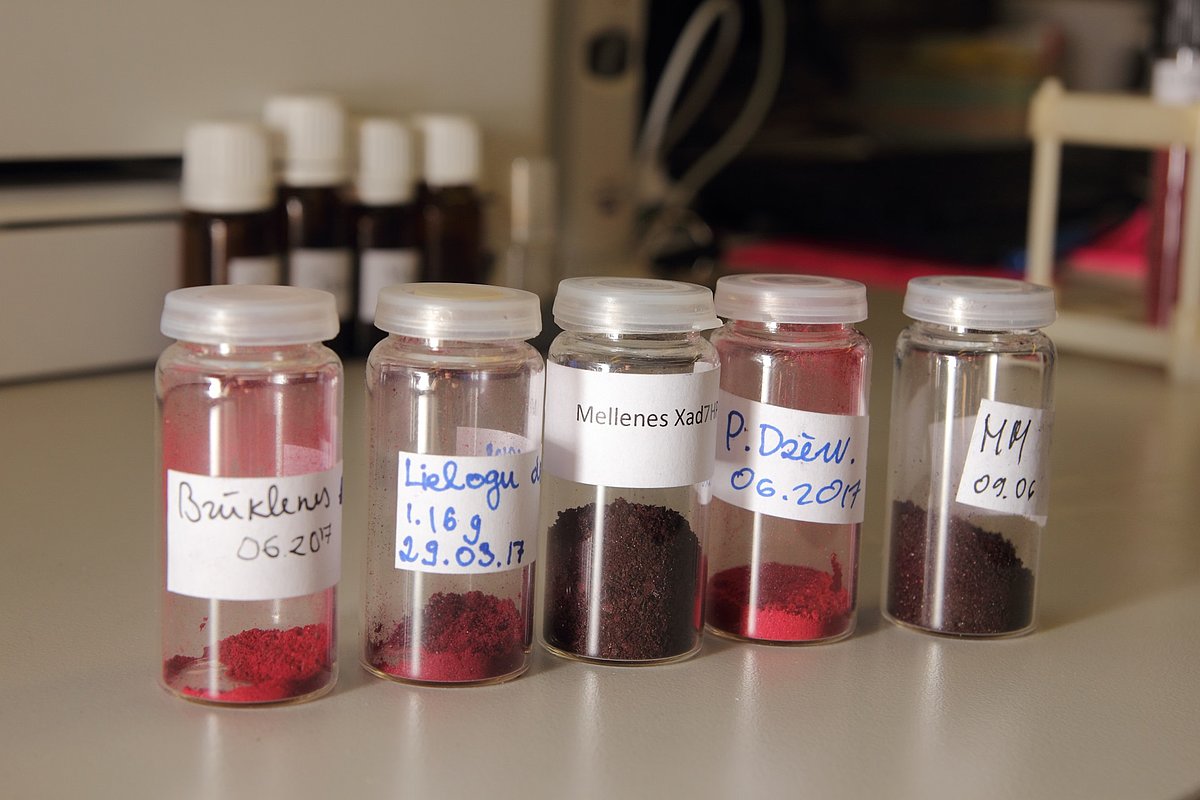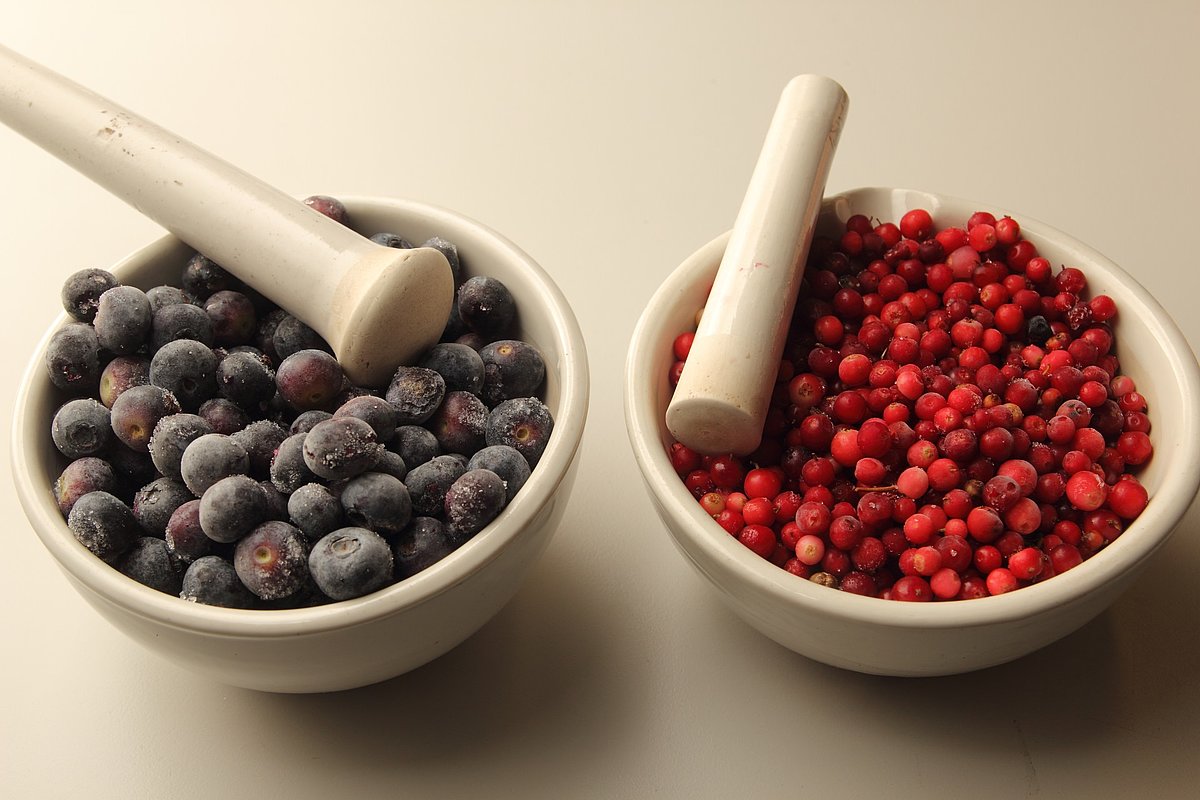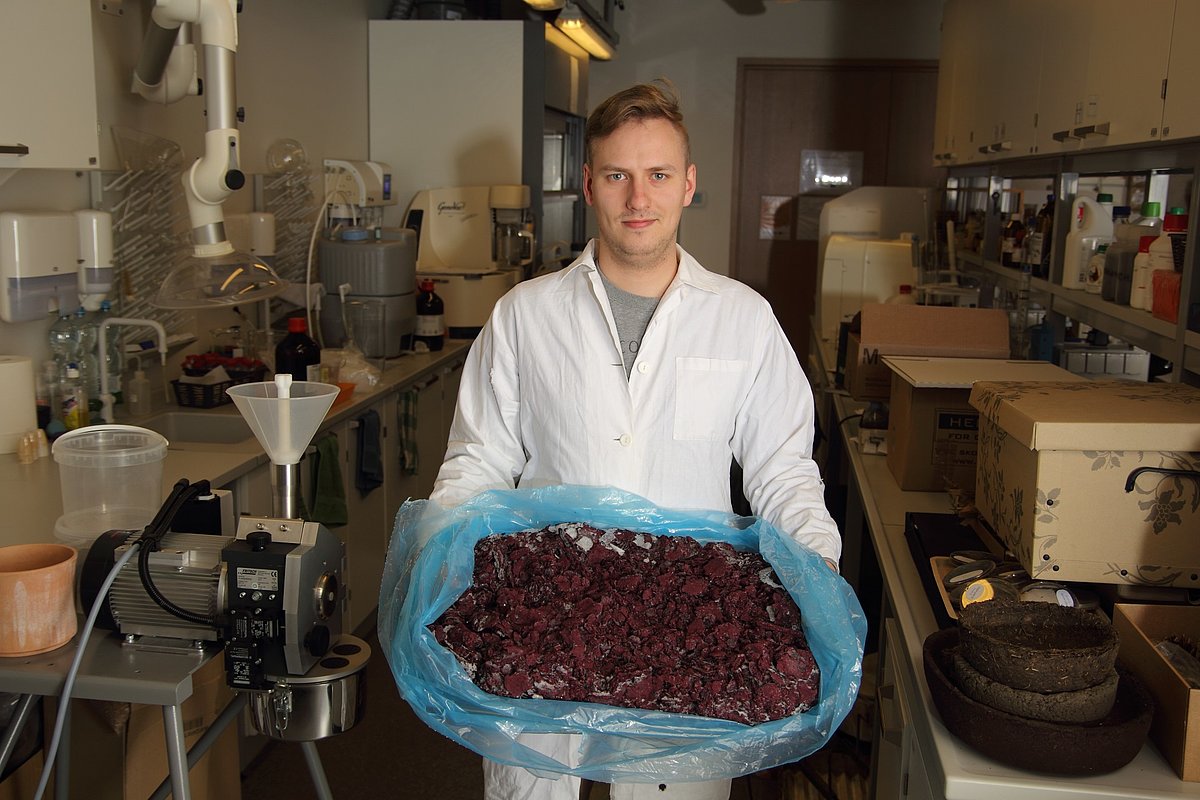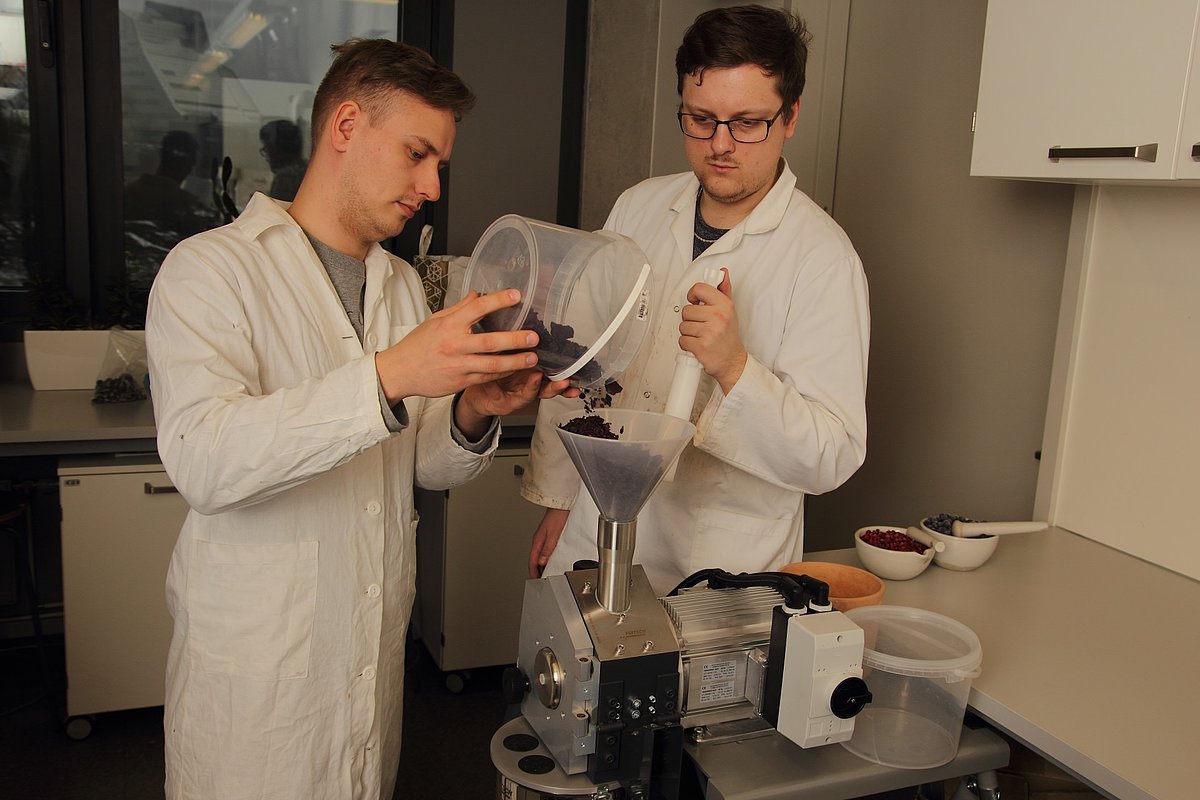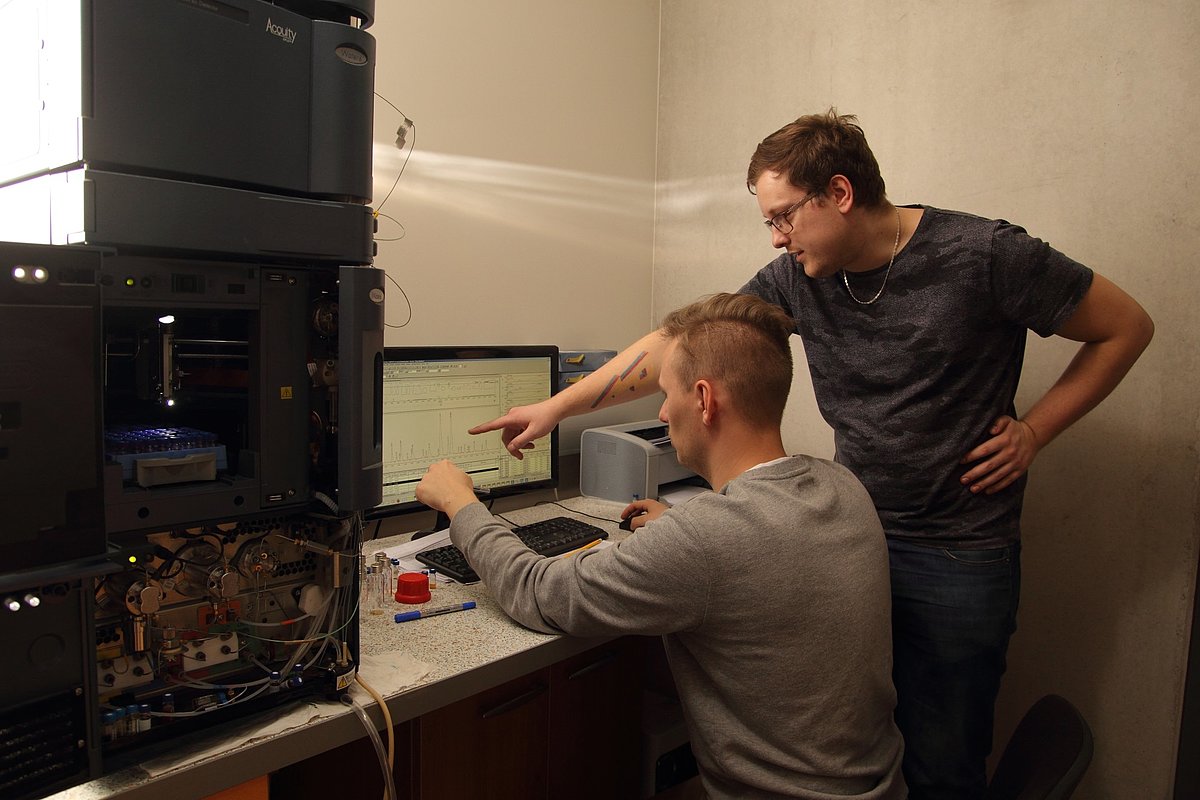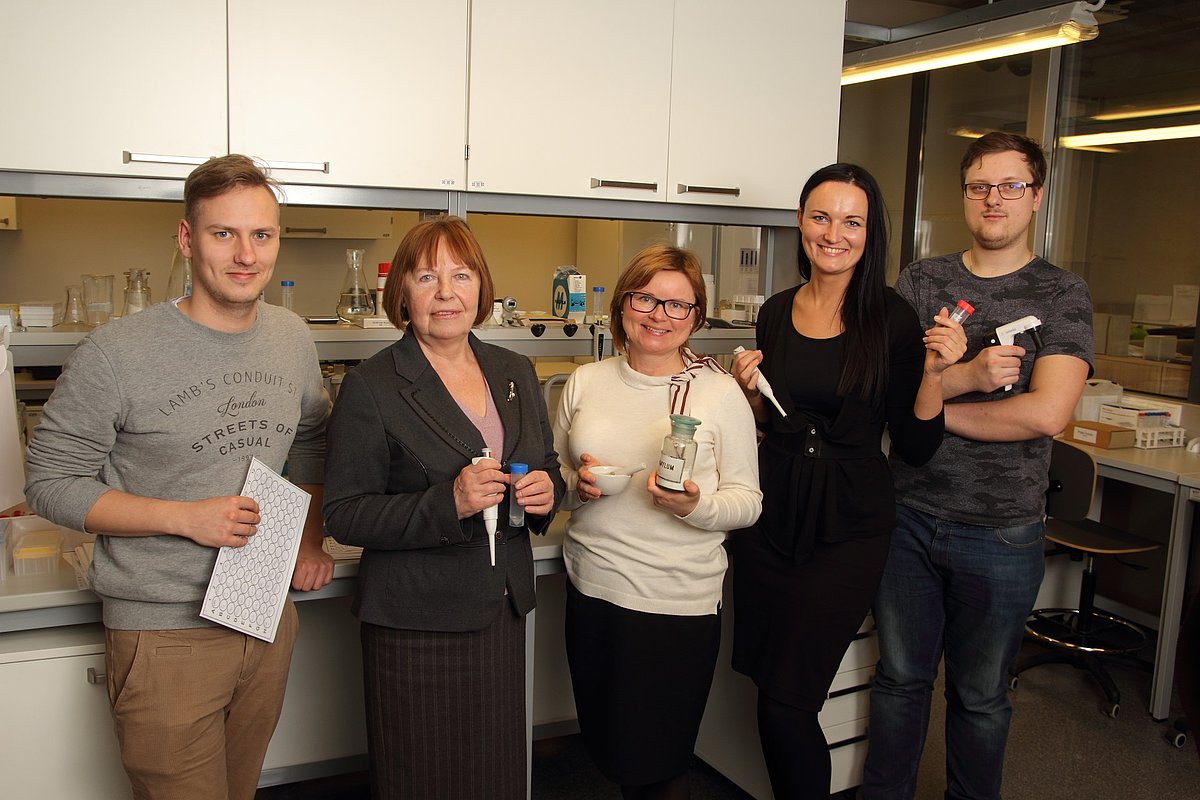Food production is one of the world's largest waste streams. For example, after extracting juice from berries, a significant amount of peel and seed are not used. Recycling them by using innovative methods opens a door to decreasing environmental pollution and reducing or even eliminating different types of waste streams. Scientists around the world find valuable materials in the waste of natural materials that have significant biological efficacy. UL FGES doctoral programme student Linards Kļaviņš is committed to develop solutions aimed at reducing the amount of generated waste. The research will examine the profile of cultivated active substances of the Vaccinium genus berries of forest and marsh, as well as their remains after processing, as well as the processing prospects thereof, using environmentally friendly methods. A significant advantage in the research process is provided by both academic knowledge and practical skills acquired in Denmark during the undergraduate studies and by the scholarship of the UL patron “Mikrotīkls” administered by the UL Foundation, providing opportunities for active participation in various scientific conferences to present the results, as well as gain a broader insight into other study fields worldwide. It is essential that the capacities of young researchers today are versatile.
The Vaccinium genus includes blueberries, whortleberries, bilberries, lingonberries, cranberries and other berries that are actively harvested and cultivated in Latvia. Berry processing is growing, and recycling is essential for the country's bio-economy. L. Kļaviņš emphasizes that the lack of research hinders practical implementation of environmentally friendly and sustainable approaches, and the situation is influenced by incomplete understanding of the composition of waste generated in the production process. Berry presses are considered to be potentially important resources, and they contain many biologically active substances that can be used in detailed research, in pharmaceuticals, cosmetics, food and other sectors.
Researchers at the UL Laboratory of Natural Products identify groups of substances in the berries or individual substances to determine the biological activity of berries. So far, a number of practical scientific publications have emerged that could contribute to future development of new products. Berries are encompassed by a wax layer that protects them from the impact of external environment, pests and pathogens. An international interdisciplinary project is currently underway to study the ability of berry wax to absorb ultraviolet radiation. Researchers at the University of Oulu (Finland) examine the structure of berry waxes and genes involved in biosynthesis of waxes, while the UL Laboratory of Natural Products carries out chemical analysis. The results show that plant waxes can be added, for example, to cosmetics to protect human skin from negative impact of UV radiation.
The polyphenols contained in the berries act as strong antioxidants in the human body with a potential of reducing the oxidative stress therein. L. Kļaviņš develops a simple scheme for obtaining polyphenol-rich extract from the presses resulting from the juice production process. It could be used as a health-promoting product. Also, pigment-forming anthocyanin is a polyphenol that could be used as natural, human-friendly food colours. Nowadays, the most pressing challenge for scientists is to find methods to make anthocyanin molecules more stable and reduce their degradation under changing environmental acidity.
The group of UL researchers participates in various types of projects and contracts, exploring the biological composition of various plant materials, including peel and leaves. The new entrepreneurs aspire to create their own product portfolio, while the experienced companies aim to improve their knowledge. Successful co-operation has developed with local companies interested in developing and marketing new pharmaceuticals containing natural substances. Currently, the use of forest blueberry polyphenols in cancer therapy is being studied, evaluating the effect of antioxidants on the blood count of research subjects. Taking into account the recommendations of UL researchers, companies are purposefully developing new technologies and optimizing the existing ones that are used for extraction of natural active substances.
In search for new biologically active substances, the potential for fractionation of extractives is significant. So far, about 80% of the polyphenols and lipids composition of berries have been studied. The approach used by the UL Laboratory of Natural Products will make it possible to explore unknown compounds in berries. Researchers of this laboratory are among the few experts in Europe to undertake this type of research. “At the outset of a study, there are many different ideas, as well as a desire to explore everything. In the development process, researchers often understand that many other unanswered questions emerge. In-depth research also uncovers the ideas for practical application of research results, for example, berries and other plant-based wax film inspire creation of super-hydrophobic surfaces. Science contains extensive unexplored fields, and thus young researchers need to be persistent and stick to their goals,” says L. Kļaviņš.

 LU konference
LU konference